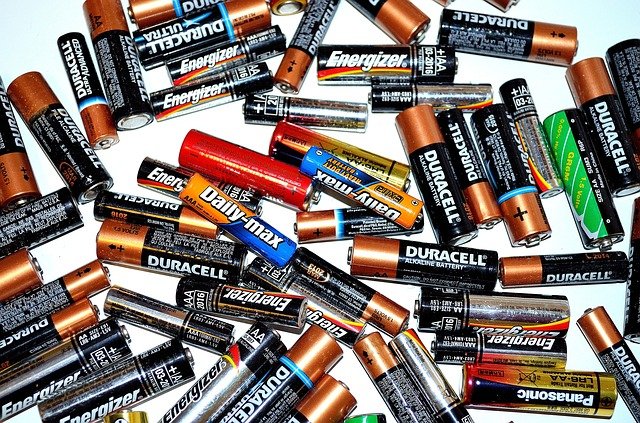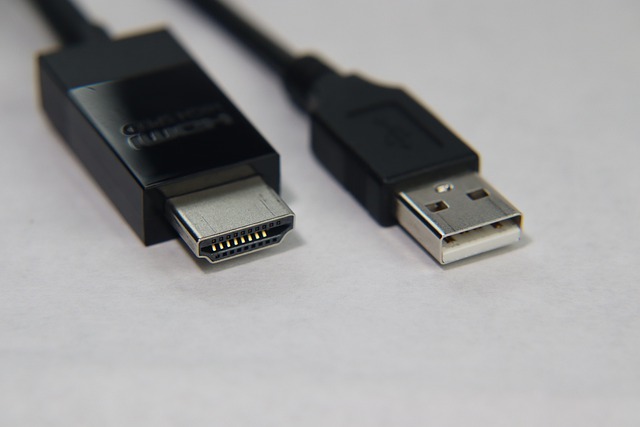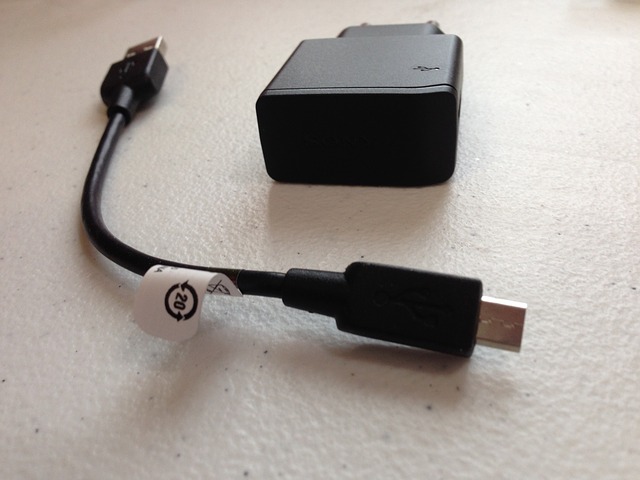Top & Best Rechargeable batteries Review 2022 – How to Select Ultimate Buyer’s Guideing.com
Top & Best Rechargeable batteries: Which are the best in 2022?
Let’s talk about one of the most basic technology items, but one of the most practical ever made: rechargeable batteries. Especially because everyone must have been on hand for a pair of ordinary batteries.
At these times, it is difficult to choose the worst, between interrupted activity or buying more batteries, again. I say that for those who don’t have rechargeable batteries. They can equal the purchase of a thousand normal batteries and even prevent the hassle of discharging devices, if used correctly.
Below, you will find a complete Buying Guide on rechargeable batteries, containing the price range, the best models, the selection criteria and what to watch for on the packaging. Stay tuned!
First, the most important
- Before choosing a model, think about the device you intend to use it on and the type and frequency of its use. These factors will guide the choice of the ideal model.
- Give preference to batteries of Nickel Metal Hydride (NiMH) compounds, which are compatible with most chargers and without the “memory effect”.
- Blister prices vary between R $ 30 and R $ 110, depending on their capacity, refill limit and load retention.
You may also like:
- Battery charger: How to choose the best in 2022?
- Portable charger: Check the best power bank of 2022
- Car charger: What is the best of 2022?
The best rechargeable batteries: Our recommendations
Below we have compiled the best rechargeable battery blisters, classified according to their capacity, technology and cost benefit. If you need to buy new rechargeable batteries and want to choose the best one for your need, at the end of this Ranking, continue with us in the Shopping Guide.
Buying Guide
Buying a battery may seem trivial, but with the rechargeable battery, it’s a different story. After all, it is a product that you will use for months, years to come. In the Shopping Guide that follows, you will have all the necessary information to choose the ideal model for your use and your device.
What is the rechargeable battery?
Rechargeable batteries, also called secondary ones, are, like other varieties of batteries, devices capable of transforming chemical energy into electrical energy, based on reactions that act under the solutions that compose them.
Their difference and their great market value lie in the fact that they can do the reverse process, that is, transform electrical energy into chemical energy. Thus, the solutions, when exposed to an electric charge – the charger -, are able to generate electricity again.
This reverse process is not infinite, that is to say. The reactions, called oxirreduction, deteriorate chemical compounds over time, lose their charge storage power and unbalance solutions, making the proposed chemistry unfeasible.
Even so, the limit is large, even greater when compared to ordinary or primary batteries, which only perform an oxidoreduction and must already be discarded.
What are the benefits of rechargeable batteries?
Most models on the market allow between 300 to 2000 refills. Therefore, in addition to a relatively long service life, it represents enormous savings, equivalent to the purchase of hundreds or even thousands of ordinary batteries.
Because of this, they have a high cost when compared to non-rechargeable models. Although the cost benefit is infinitely higher, it somewhat loses the emergency character of the product.
Another issue is its voltage, 1.2 volts, slightly below the average of the primary batteries, 1.5 volts. Although it depends on the device, as a rule its charge lasts less time.
However, it is constant, that is, it provides the same voltage throughout the duration of the charge, unlike the common ones, which lose their tension during use.
In this way, the rechargeable battery prevents that uncomfortable situation of the device from losing its strength: the control takes longer to respond, the volume of the radio goes down, the light of the flashlight decreases…
Another annoyance, but with the secondary battery itself, is the recharge time, high by the standards of a society that has become accustomed to the rapid charge of cell phones. The average is eight hours, and can vary between five and twelve hours.
Finally, there is the ecological issue and conscious consumption, which the rechargeable battery scores ten. With a couple of these batteries worth hundreds or thousands of normal ones, kilos of garbage from a very specific disposal product are avoided, which if done badly is very harmful to the environment.
NiCd or NiMH rechargeable batteries?
There are two varieties of rechargeable battery, which say about the components of the solution to be reduced. One of them, the first to appear, is the one that carries a Nickel Cadmium compound, or NiCd. The other solution is formed by Nickel Metal Hydride, NiMH.
Although NiCd is a pioneer, it is NiMH that dominates the market. This is because the former, in addition to having Cadmium, a metal with enormous polluting potential, had a problem in its operation, dubbed the “memory effect”, which caused the batteries to lose their full recharging capacity.
NiMH, on the other hand, is less polluting, without the “memory effect” and still has greater capacity. Added to this is the fact that NiMH models can be recharged in any battery charger, regardless of the brand.
There is also a sub-variety of NiMH, LSD, from English Lower Self Discharge, something like “less self-discharge”, which combats the natural effect of battery discharge. Superior to NiMH itself, they are rarer and, consequently, more expensive.
What is the difference between an AA and AAA rechargeable battery?
Like ordinary batteries, rechargeable batteries are also available in the range of AA and AAA batteries. The difference is also the same: AA, larger, contains a capacity well above AAA, also called toothpick.
Obviously, they only work with their specific fittings, but in general, AA (or 2A) are indicated for high energy consumption devices, such as toys and video game controls, while AAA (3A) for lower consumption devices, such as television controls, small scales and other devices for intermittent use.
How much do rechargeable batteries cost?
The price variation between rechargeable battery models is relatively low, between R $ 30 and R $ 110, not least because they have the same operation.
It is your specifications that are responsible for the biggest fluctuations. Its capacity, its load retention and its recharge limit, all increasing proportionally with the model’s value, are the main ones.
Finally, the composition of the blisters also affects the value, with more or less batteries and the addition or not of a charger.
Where to buy rechargeable batteries?
In physical stores, you will find a greater variety of models in those specialized in electronics, such as Magazine Luiza and Ponto Frio, but department stores.
For a greater variety of prices, without losing options and even in the comfort of your home, online stores like Amazon and the digital versions of the stores mentioned above serve the purpose very well.
Purchasing Criteria: Factors for comparing rechargeable battery models
lists for you the criteria that will help you choose the ideal rechargeable battery. Basic items, but worth your attention:
- Stack destination
- Recharge capacity and time
- Refill limit and load retention
- Ready to use or preloaded
See in detail each of the topics mentioned to make the best choice.
Stack destination
What will dictate the ideal rechargeable battery model is its destination, that is, the device in which it will be used. At first, the battery type is removed, between AA or AAA, since they work in specific fittings.
Then, its energy demand and the frequency with which the device is used point the rest of the way, the specifications of the battery.
High energy demand devices, such as video game controls, call for higher capacity batteries, while kitchen appliances require less energy and therefore less battery capacity.
In the same way, dynamic uses such as cameras, especially those used professionally “demand” a balance between capacity and recharge time. Intermittent devices, on the other hand, prioritize batteries with greater charge retention.
Recharge capacity and time
The capacity of the rechargeable battery is the next aspect to look at. It is the one who defines the size, that is, the time that a load lasts. Yes, the device’s demand is important, but the greater the capacity, the greater its load.
In AAA batteries, the range is between 600 to 1,500 mAh (milliamperes) and in AA, from 600 mAh to 3,000 mAh. Thus, the greater the energy demand of your device and the more you want to use it without recharging, the higher the amperage of the chosen model must be.
But be smart: higher charge also means longer recharge time, which can reach up to 12 or 14 hours. If you cannot afford these hours of recharge, it is recommended to purchase at least one more pair of batteries, or blister with four or more units.
Refill limit and load retention
After considering your usage and the size of your charge, the next item is battery life. A rechargeable battery loses its validity when it reaches the maximum number of refills and its retention percentage will increase or decrease the amount of refills within a period of time.
Then consider your load limit and your load retention percentage. Most models on the market can do between 300 and 1,500 refills, 2,000 at most. As for retention, normal models are in the range of 60% to 70%, and the most advanced models, up to 85%. There is no 100% retention.
Ready to use or preloaded
Finally, it is worth paying attention to the packaging if there is an indication that the batteries are “ready for use” or “pre-charged”.
This fact does not alter the composition, useful life or efficiency of the battery, or even mean that the batteries that are not charged are inferior. But it’s a hand on the wheel for those who need the load right away. In addition, they can show the brand’s confidence in the load retention of your product.
People Also Search For
best rechargeable batteries charger
best rechargeable batteries for solar lights
rechargeable battery with charger
best rechargeable d batteries
eneloop rechargeable batteries
best rechargeable batteries reddit
amazonbasics rechargeable batteries
panasonic eneloop pro with charger
eneloop pro vs duracell ultra
eneloop rechargeable batteries with charger
best rechargeable batteries reddit
best rechargeable battery charger
best rechargeable batteries for xbox
energizer recharge universal
4000 mah aa rechargeable batteries
best rechargeable batteries for solar lights
envie rechargeable battery
eveready rechargeable battery
duracell india
panasonic eneloop pro
ebl batteries wiki
best rechargeable batteries 2019
eneloop vs eneloop pro reddit
best rechargeable aa batteries reddit
best rechargeable batteries charger
rechargeable battery charger home depot
rechargeable batteries with charger walmart
best rechargeable lithium aa batteries
rechargable batteries
best rechargeable aaa batteries reddit
best aaa rechargeable batteries 2022
People also ask
What are the best rechargeable batteries to buy?
Which rechargeable battery lasts the longest?
Are rechargeable batteries worth it?
Which is better Energizer or Duracell rechargeable batteries?
How do I choose a rechargeable battery?
How can you tell if rechargeable batteries are bad?
Which rechargeable AAA batteries are best?
What are the longest lasting rechargeable AAA batteries?
Are Amazon batteries as good as Energizer?
Why are rechargeable batteries not recommended?
Do rechargeable batteries use a lot of electricity?
How many times can rechargeable batteries be recharged?
Are Energizer and Duracell the same company?
Can I use Duracell rechargeable batteries in an Energizer charger?
Why is Duracell expensive?
Which battery is better NiMH or lithium ion?
Which battery brand is best?





